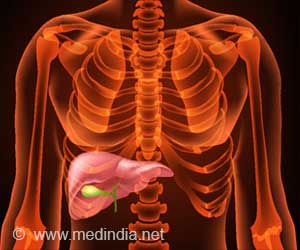Frequently Asked Questions about Auto-Brewery Syndrome
1. Which doctor is best suited to treat?Collaboration among various healthcare professionals, including nurses, psychologists, and social workers, is essential for delivering comprehensive care to individuals with ABS. An inter-professional team approach facilitates holistic assessment, personalized treatment planning, and ongoing support to address the multifaceted needs of patients and their families.
- Gastroenterologist: Gastroenterologists specialize in the diagnosis and treatment of disorders affecting the digestive system, including ABS. Their expertise is invaluable in conducting endoscopic procedures, interpreting test results, and guiding treatment strategies.
- Infectious Disease Specialist: Infectious disease specialists play a crucial role in identifying and treating infections caused by pathogenic microorganisms implicated in ABS. Their input is essential for selecting appropriate antimicrobial therapies and managing associated complications.
- Registered Nutritionist:Registered nutritionists possess expertise in designing dietary plans tailored to individual needs and medical conditions. In ABS management, a nutritionist can provide guidance on implementing low-carbohydrate, high-protein diets and optimizing nutritional intake to support overall health and symptom control.
- Endocrinologist: Endocrinologists specialize in the diagnosis and management of hormonal and metabolic disorders, which may contribute to the development or exacerbation of ABS. Their involvement may be warranted in cases where underlying endocrine conditions, such as diabetes, impact ABS management.
- Hepatologist: Hepatologists specialize in the diagnosis and treatment of liver diseases, including non-alcoholic fatty liver disease (NAFLD) and nonalcoholic steatohepatitis (NASH), which are associated with ABS. Consultation with a hepatologist may be beneficial for managing liver-related complications and optimizing treatment outcomes.
- Primary Care Provider: Primary care providers, such as family physicians or internists, serve as the central point of contact for coordinating care and overseeing the overall management of ABS. They play a vital role in conducting initial assessments, coordinating referrals to specialists, and providing ongoing support to patients.
- Pharmacist: Pharmacists contribute to ABS management by ensuring the safe and appropriate use of medications, including antifungals, antibiotics, and probiotics. They provide valuable insights into drug interactions, dosing regimens, and medication adherence, optimizing therapeutic outcomes.
Auto-Brewery Syndrome can be triggered by factors such as a diet high in sugars and carbohydrates, antibiotic use leading to gut dysbiosis, underlying medical conditions like diabetes or liver diseases, and immunocompromised states.
3. Can Auto-Brewery Syndrome be mistaken for alcoholism?
Yes, due to its symptoms resembling alcohol intoxication, ABS may be misunderstood as alcoholism.
4. What dietary changes help manage Auto-Brewery Syndrome?
Following a low-carbohydrate, high-protein diet can reduce ethanol production and alleviate symptoms of ABS.
5. Is Auto-Brewery Syndrome contagious?
No, ABS is not contagious; it results from an imbalance of microorganisms within an individual's body.
6. Can Auto-Brewery Syndrome lead to legal issues?
Yes, elevated blood alcohol levels in ABS can lead to legal complications, especially if mistaken for alcohol consumption.
7. Is Auto-Brewery Syndrome more common in certain populations?
ABS can occur in anyone, but individuals with conditions like diabetes or liver disease may be at higher risk.
8. Is there a cure for Auto-Brewery Syndrome?
There's no definitive cure, but management strategies aim to alleviate symptoms and prevent relapses.
9. Can Auto-Brewery Syndrome be life-threatening?
While not typically life-threatening, ABS can cause significant impairment and complications if left untreated.
10. Can alcoholics develop Auto-Brewery Syndrome?
ABS can occur in individuals with a history of alcoholism but can also affect those without prior alcohol use.
11. Is Auto-Brewery Syndrome a recognized medical condition?
Yes, though rare, ABS is recognized by the medical community, and research continues to expand our understanding of it.
12. Does Auto-Brewery Syndrome affect children?
Yes, Auto-Brewery Syndrome can affect children, although it is rare. Treatment in children typically involves dietary modifications, medications, and close monitoring by healthcare providers to manage symptoms effectively.
13. What foods should individuals with Auto-Brewery Syndrome avoid?
Individuals with Auto-Brewery Syndrome should avoid high-carbohydrate and sugary foods, as these provide the substrate for ethanol fermentation in the gut. Common foods to avoid include bread, pasta, sugary snacks, and alcoholic beverages.
14. How rare is Auto-Brewery Syndrome?
Auto-Brewery Syndrome is considered extremely rare, with only a few documented cases reported in medical literature. However, its true prevalence may be underestimated due to misdiagnosis or lack of awareness among healthcare professionals.
15. Can a breathalyzer detect Auto-Brewery Syndrome?
Yes, a breathalyzer can detect elevated levels of ethanol in individuals with Auto-Brewery Syndrome, as the condition leads to the internal production of alcohol, which can be detected through breath alcohol concentration (BrAC) testing. However, this may require specialized testing methods or protocols to differentiate from external alcohol consumption.
16. How to stop gut fermentation?
To stop gut fermentation, individuals with conditions like Auto-Brewery Syndrome can make dietary modifications by avoiding foods high in sugars and carbohydrates. Additionally, adopting a high-protein, low-carbohydrate diet and using targeted medications like antifungals or antibiotics under medical supervision can help manage gut fermentation.
17. Does auto-brewery syndrome affect the liver?
Yes, auto-brewery syndrome can affect the liver, especially in cases where there is chronic exposure to high levels of endogenous ethanol. Elevated ethanol levels can lead to liver dysfunction, exacerbating conditions like cirrhosis or fatty liver disease. Proper management and dietary modifications are crucial to mitigate liver-related complications associated with auto-brewery syndrome.
18. What is the main cause of fermentation?
Fermentation is primarily caused by the action of microorganisms such as yeast and bacteria on sugars and carbohydrates, leading to the production of ethanol and other byproducts. In the context of auto-brewery syndrome, fermenting microorganisms within the gastrointestinal tract contribute to the endogenous production of alcohol, resulting in symptoms resembling alcohol intoxication.
19. When was the first case of auto-brewery syndrome?
The first documented case of auto-brewery syndrome was reported in the 1970s.











